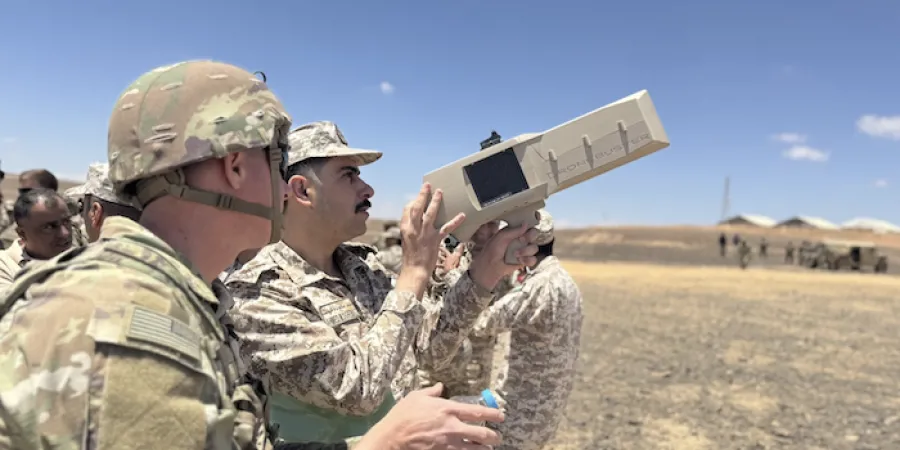CENTCOM Fights Drones: Advanced Exercises in the Middle East to Improve Coping with UAV Threats
The United States Central Command will conduct a series of exercises, aimed at practicing and developing new methods to combat threats posed by drones and unmanned aerial vehicles
Dan Arkin
| 30/06/2024
The United States Central Command (CENTCOM) plans a series of exercises aimed at practicing new methods to combat the threat of drones and UAVs in the Middle East.
In light of the increase in attacks against American and allied forces in Iraq, Syria, and from the Houthis in Yemen, CENTCOM is collaborating with the Digital and Artificial Intelligence Directorate to develop capabilities and techniques in this field. The development primarily focuses on sensors that can detect drones, as well as ways to integrate these sensors into command and control systems.
Major Bryan Cercy, innovation officer at CENTCOM, told Defense News that a special team will select the sensors to participate in the exercise scheduled for October, which will focus on drone and UAV threats. At the beginning of next year, a follow-up exercise will be held at a base in the Middle East, focusing on integrating the sensors into the command and control systems.
CENTCOM has an innovation team tasked with identifying technologies that will aid military missions related to sensors relevant to unmanned threats and counter systems, in collaboration with artificial intelligence (AI). CENTCOM explains that they have various systems suitable for intercepting UAVs and drones. Still, some of these systems do not communicate with each other, making it difficult and time-consuming to identify threats accurately.
Therefore, they are attempting to develop methods to ensure the efficient and joint operation of all operators to counter unmanned threats with the assistance of artificial intelligence.
The United States Central Command will conduct a series of exercises, aimed at practicing and developing new methods to combat threats posed by drones and unmanned aerial vehicles
The United States Central Command (CENTCOM) plans a series of exercises aimed at practicing new methods to combat the threat of drones and UAVs in the Middle East.
In light of the increase in attacks against American and allied forces in Iraq, Syria, and from the Houthis in Yemen, CENTCOM is collaborating with the Digital and Artificial Intelligence Directorate to develop capabilities and techniques in this field. The development primarily focuses on sensors that can detect drones, as well as ways to integrate these sensors into command and control systems.
Major Bryan Cercy, innovation officer at CENTCOM, told Defense News that a special team will select the sensors to participate in the exercise scheduled for October, which will focus on drone and UAV threats. At the beginning of next year, a follow-up exercise will be held at a base in the Middle East, focusing on integrating the sensors into the command and control systems.
CENTCOM has an innovation team tasked with identifying technologies that will aid military missions related to sensors relevant to unmanned threats and counter systems, in collaboration with artificial intelligence (AI). CENTCOM explains that they have various systems suitable for intercepting UAVs and drones. Still, some of these systems do not communicate with each other, making it difficult and time-consuming to identify threats accurately.
Therefore, they are attempting to develop methods to ensure the efficient and joint operation of all operators to counter unmanned threats with the assistance of artificial intelligence.



